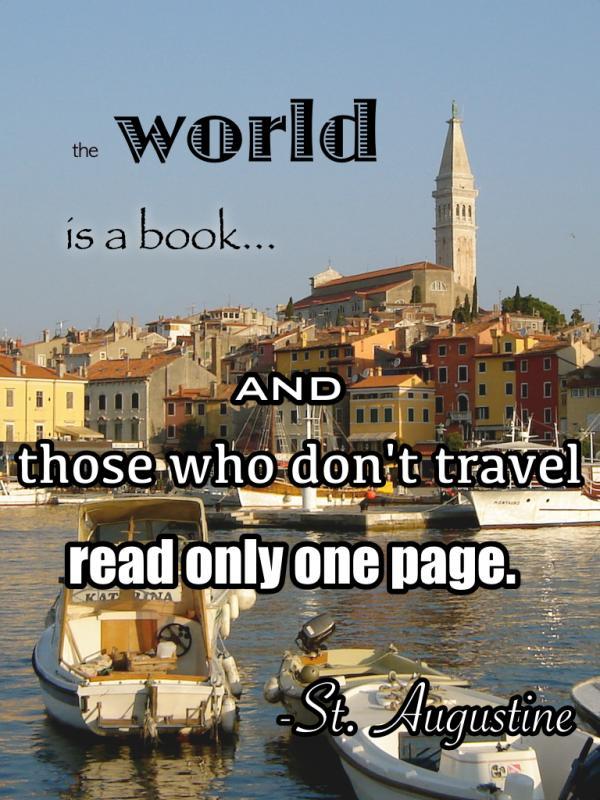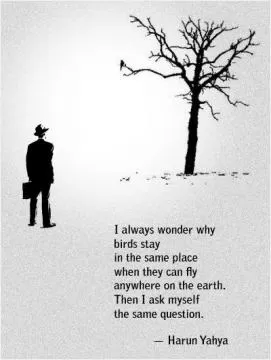
The world is a book, and those who don't travel read only one page



The world is a book, and those who don't travel read only one page
Saint Augustine, a renowned theologian and philosopher, once famously said, "The world is a book, and those who don't travel read only one page." This profound statement encapsulates the idea that true knowledge and understanding can only be gained through experiencing the world firsthand. For Augustine, travel was not just a physical journey from one place to another, but a metaphor for the exploration of different cultures, ideas, and perspectives.Augustine believed that by immersing oneself in new environments and interacting with people from diverse backgrounds, one could expand their horizons and gain a deeper understanding of the world. He saw travel as a means of broadening one's perspective and challenging preconceived notions. By venturing outside of familiar surroundings, individuals could break free from the constraints of their own limited experiences and open themselves up to new possibilities.
In the context of Augustine's teachings, the act of traveling was not just about visiting new places, but about engaging with the world in a meaningful way. It was about seeking out knowledge, wisdom, and truth wherever it may be found. Augustine believed that by exploring the world and experiencing different cultures, individuals could gain a greater appreciation for the diversity and complexity of human existence.
Furthermore, Augustine saw travel as a spiritual journey, a way of seeking out God's presence in the world. He believed that by immersing oneself in the beauty and wonder of creation, one could come closer to understanding the divine. For Augustine, travel was a way of connecting with the sacredness of the world and experiencing the presence of God in all things.












 Friendship Quotes
Friendship Quotes Love Quotes
Love Quotes Life Quotes
Life Quotes Funny Quotes
Funny Quotes Motivational Quotes
Motivational Quotes Inspirational Quotes
Inspirational Quotes